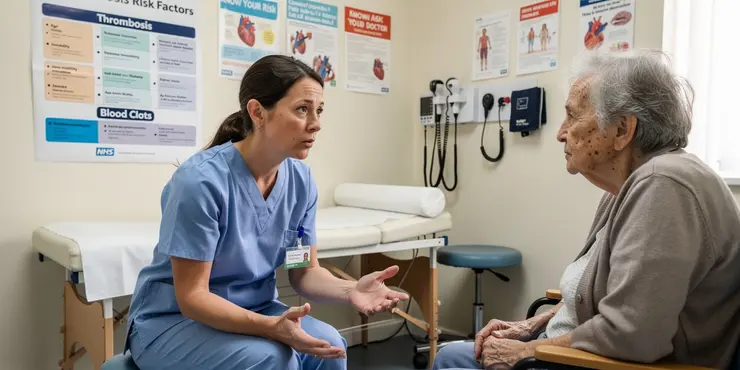
Find Help
More Items From Ergsy search
-
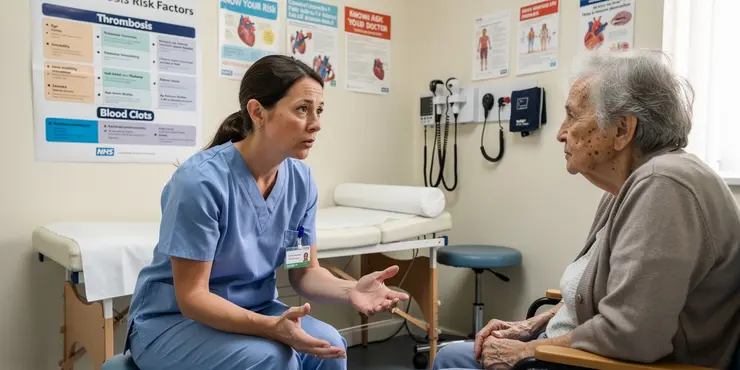
Who is at higher risk for thrombosis?
Relevance: 100%
-

What are the risk factors for thrombosis?
Relevance: 74%
-
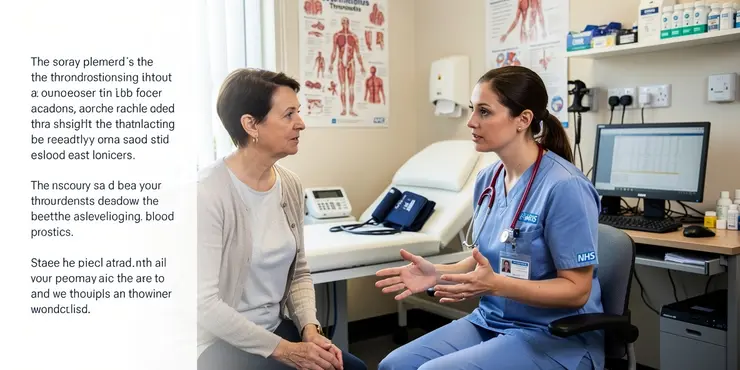
What is thrombosis?
Relevance: 64%
-
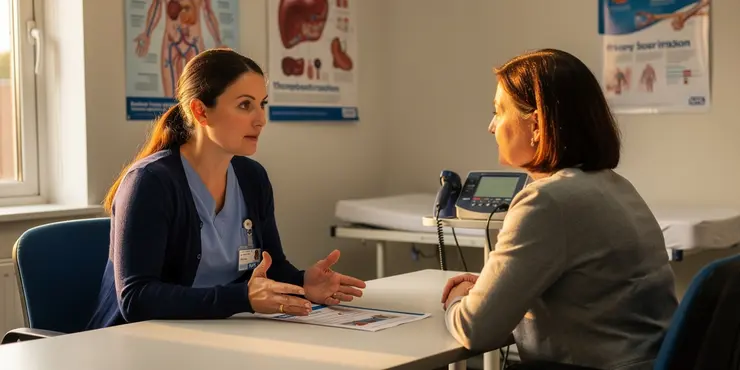
What causes thrombosis?
Relevance: 59%
-
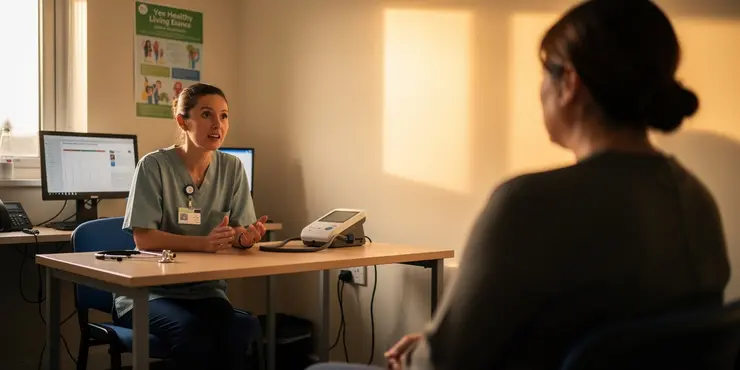
What lifestyle changes can help manage thrombosis risk?
Relevance: 59%
-
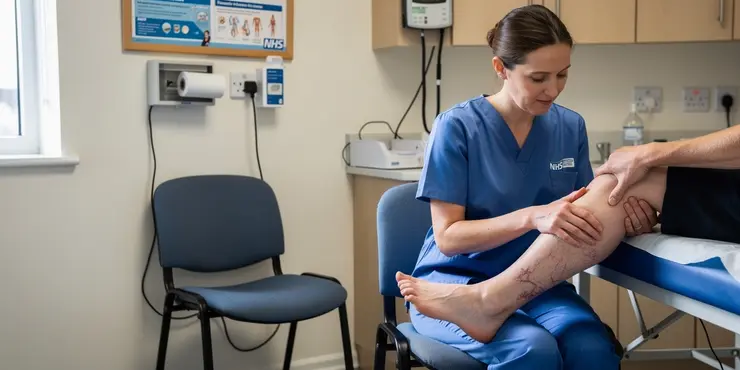
What are the types of thrombosis?
Relevance: 56%
-
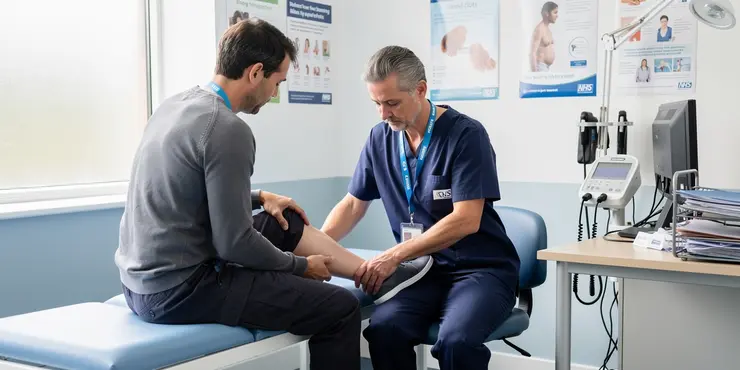
How is thrombosis diagnosed?
Relevance: 54%
-

How is thrombosis treated?
Relevance: 53%
-

What are the symptoms of arterial thrombosis?
Relevance: 52%
-

Who is at higher risk of contracting meningitis?
Relevance: 47%
-

What populations are at higher risk for E. coli infections?
Relevance: 45%
-
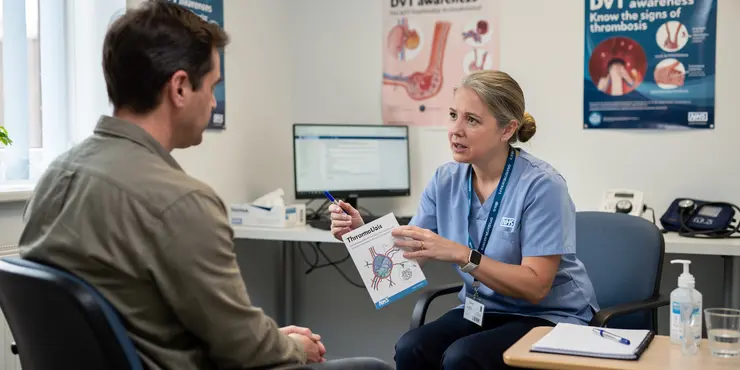
Is thrombosis a common condition?
Relevance: 43%
-
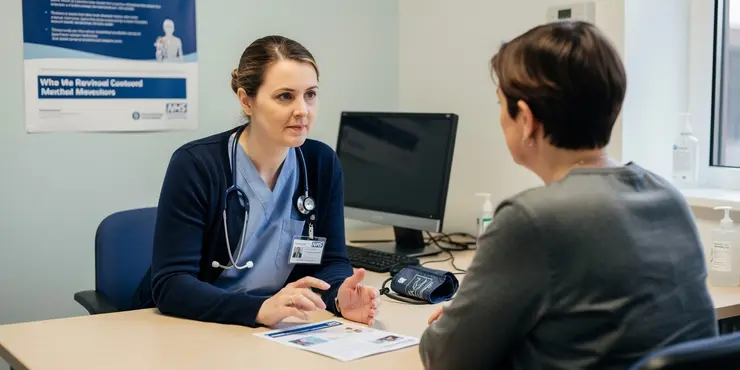
Are there any countries at higher risk for Marburg virus outbreaks?
Relevance: 42%
-
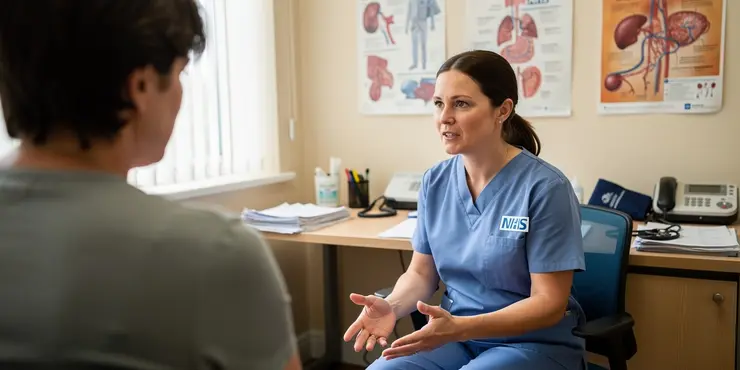
Why is thrombosis dangerous?
Relevance: 42%
-

A guide to hospital-acquired deep vein thrombosis and pulmonary embolism
Relevance: 41%
-
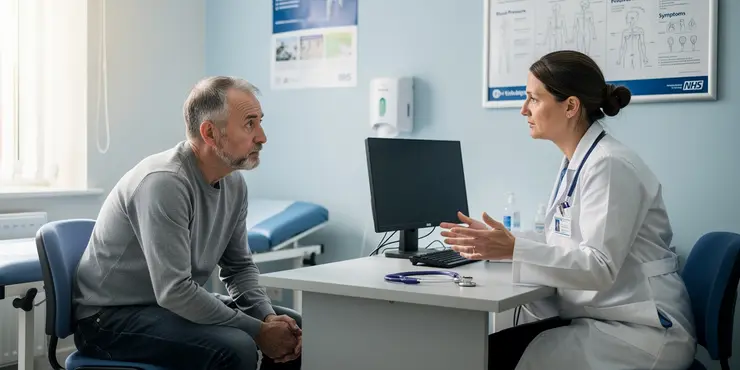
What are the symptoms of deep vein thrombosis (DVT)?
Relevance: 41%
-

What professions are at higher risk of methanol exposure?
Relevance: 37%
-
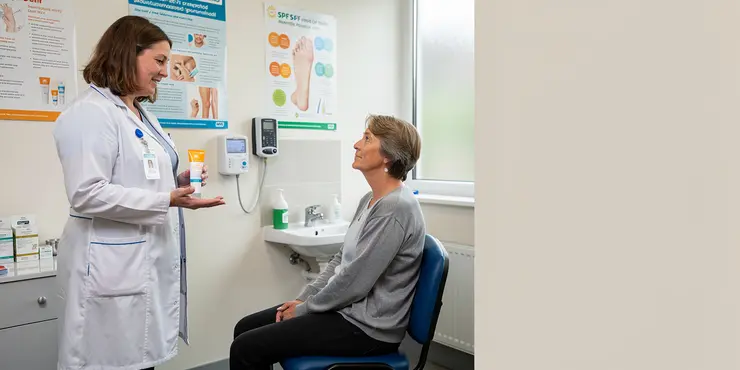
Is a higher SPF always better?
Relevance: 34%
-
Is it better to choose a higher deductible for lower premiums?
Relevance: 34%
-

Poor sense of smell in the elderly linked with higher risk of dying | NHS Behind the Headlines
Relevance: 33%
-

Which countries have higher rates of measles?
Relevance: 27%
-
Who is at risk for developing an eating disorder?
Relevance: 26%
-

What are the risk factors for bowel cancer?
Relevance: 26%
-

Higher Income Tax - How to Claim Pension Tax Relief | Extra 20% Boost
Relevance: 25%
-
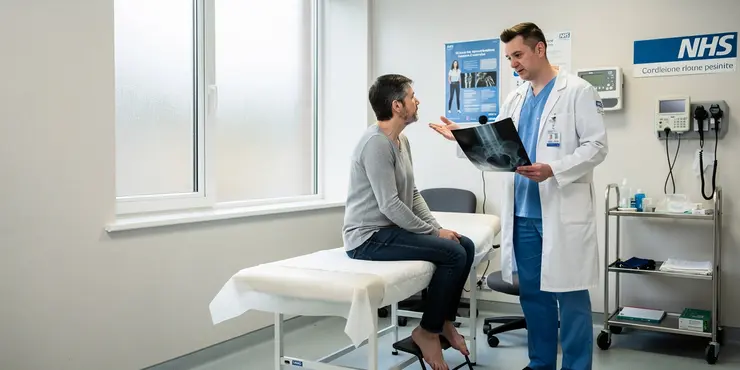
What are the risks associated with hip replacement surgery?
Relevance: 25%
-

Who is at risk of developing SAD?
Relevance: 24%
-
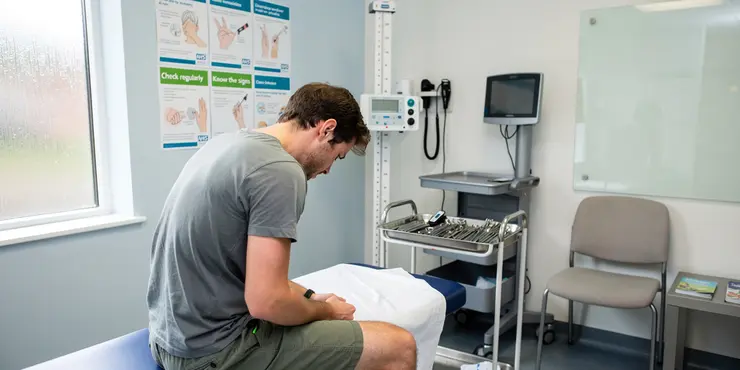
Who is at risk for testicular cancer?
Relevance: 24%
-
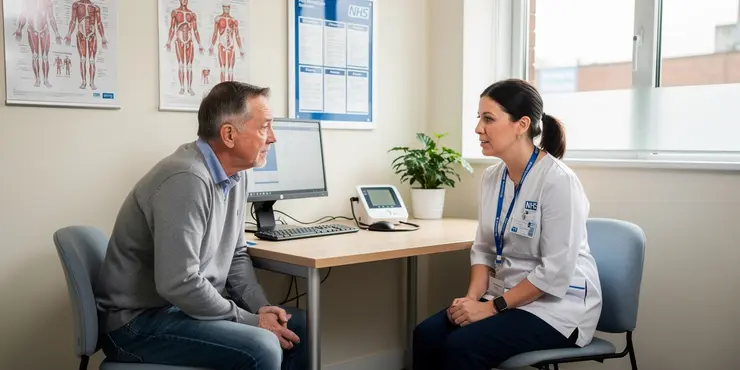
Are there any risks associated with traveling to the EU for medical treatment?
Relevance: 24%
-
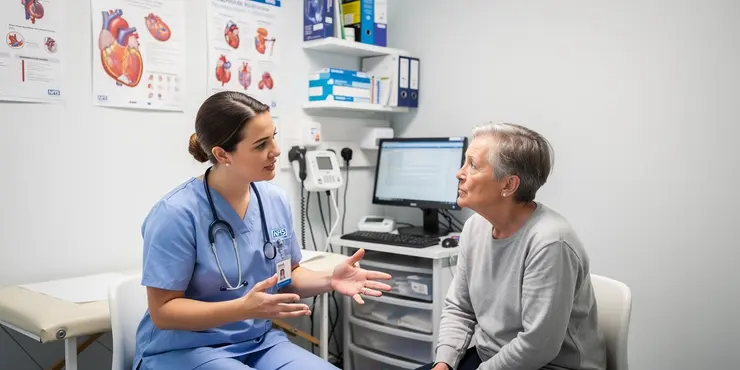
Can thrombosis be prevented?
Relevance: 24%
-
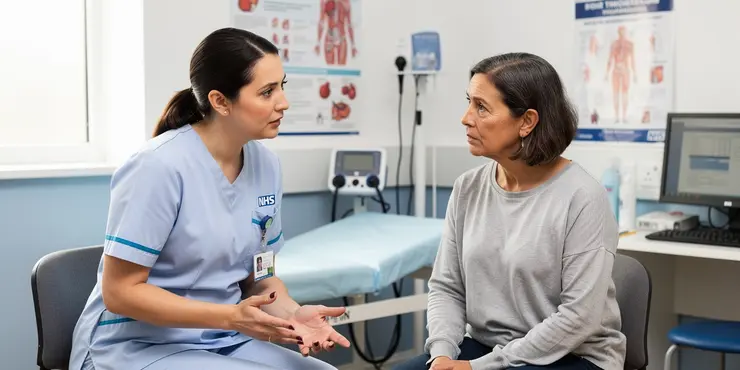
Can thrombosis recur?
Relevance: 24%
-

Who is at risk for severe illness from West Nile Virus?
Relevance: 24%
-
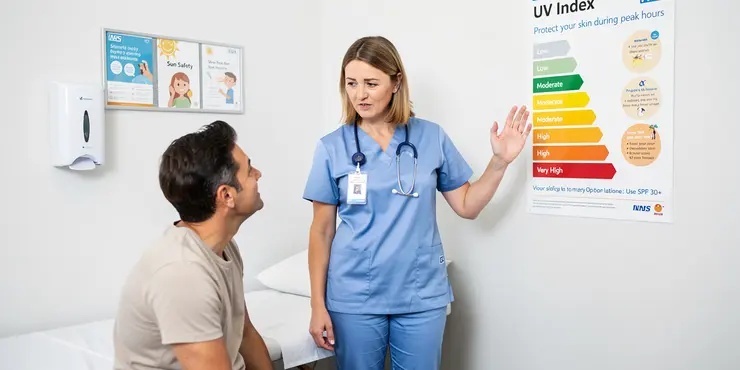
At what time of day is the sunburn risk highest?
Relevance: 24%
-
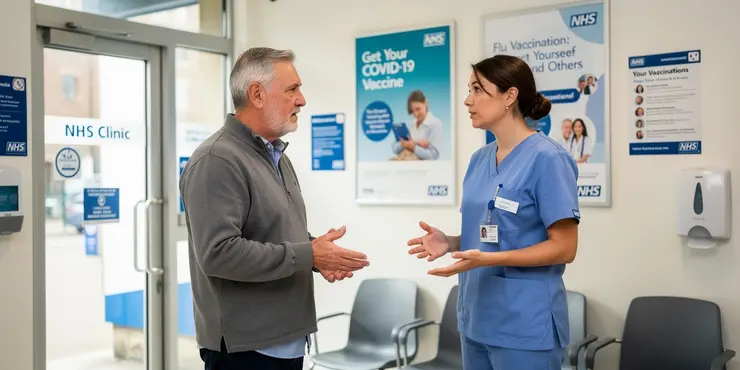
Are adults in the UK at risk from measles?
Relevance: 23%
-
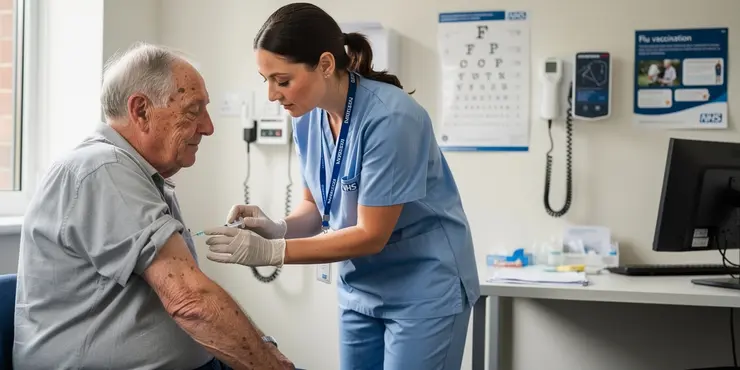
Are certain populations more at risk during the 2026 flu season?
Relevance: 23%
-

Are there any risks associated with facelifts?
Relevance: 23%
-

Who is at risk of developing chronic fatigue syndrome?
Relevance: 23%
-
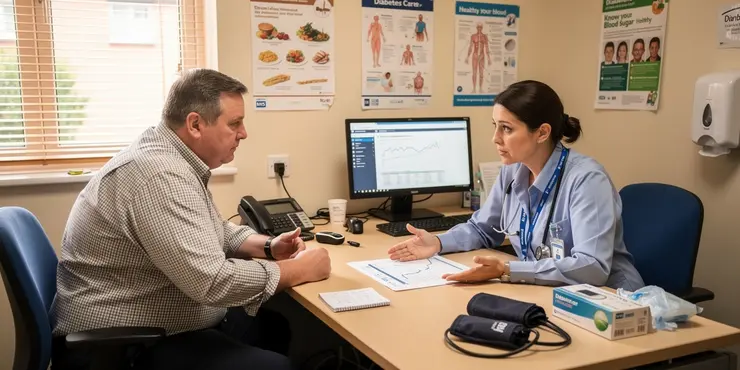
Who is at risk for flesh-eating disease?
Relevance: 23%
-

Who is at risk of developing shingles?
Relevance: 23%
-

Are there risks associated with IVF?
Relevance: 23%
-

Who is most at risk for complications from H3N2?
Relevance: 23%
Who is at Higher Risk for Thrombosis?
Thrombosis occurs when a blood clot forms in a blood vessel, potentially leading to serious health complications. Understanding who is at higher risk for thrombosis can help in both prevention and early intervention. Specific risk factors include age, genetic predisposition, lifestyle choices, and certain medical conditions. Being aware of these can help individuals and healthcare providers manage and mitigate risks more effectively.
Age and Gender
Age is a significant risk factor for thrombosis. People over the age of 60 are at a higher risk due to changes in blood composition and vessel elasticity as the body ages. Gender also plays a role; women are at an increased risk during specific life stages such as pregnancy, postpartum, and while taking hormone treatments like oral contraceptives or hormone replacement therapy. These factors can increase the propensity for blood clot formation.
Genetic Predisposition
Certain genetic factors can predispose individuals to thrombosis. Conditions such as Factor V Leiden mutation, Prothrombin G20210A mutation, and deficiencies in anticoagulant proteins like Protein C, Protein S, and Antithrombin can increase the risk of developing blood clots. Those with a family history of thrombosis are also more susceptible. Genetic screening can be beneficial for individuals with a significant family history of blood clotting disorders.
Lifestyle Factors
Lifestyle choices have a substantial impact on thrombosis risk. Smoking, a sedentary lifestyle, and obesity are notable risk factors. Smoking introduces harmful substances into the bloodstream, which can damage vessel linings and promote clot formation. Obesity often involves high cholesterol levels and hypertension, both of which contribute to thrombosis risk. Regular physical activity and maintaining a healthy weight are crucial measures in reducing this risk.
Medical Conditions
Certain medical conditions significantly increase the risk of thrombosis. Individuals with cancer, heart disease, or autoimmune conditions such as antiphospholipid syndrome are at an elevated risk. Furthermore, diabetes mellitus and conditions that affect blood flow, such as atrial fibrillation, can also contribute to a heightened risk. Managing these conditions through medication and lifestyle interventions is essential in reducing thrombosis risk.
Surgery and Immobility
Undergoing surgery, particularly orthopedic or abdominal procedures, can increase the risk of developing thrombosis due to prolonged immobility and potential damage to blood vessels. Prolonged periods of immobility, such as during long-haul flights or bed rest, can also contribute to clot formation. Prophylactic measures, such as anticoagulant medications and compression stockings, are often recommended to mitigate this risk during extended immobility.
Who is at Higher Risk for Blood Clots?
Blood clots can form in your veins and cause health problems. Some people have a higher chance of getting blood clots than others. Knowing who might be at risk can help prevent or treat clots early. Things that can make someone more likely to have blood clots include age, their genes, how they live, and other health problems. Being aware of these can help keep you safe.
Age and Gender
Older people are more likely to get blood clots. This is because our veins and blood change as we get older. If you are older than 60, you have a higher chance. Gender also matters. Women might have a higher chance during pregnancy, after having a baby, or when using hormone medicines like birth control pills. These times can increase the risk of blood clots.
Genetic Predisposition
Some people have genes that make blood clots more likely. If people in your family have had blood clots, you might have a higher risk too. Certain conditions, like Factor V Leiden, can make clots form more easily. You can have genetic tests to see if you have these conditions.
Lifestyle Factors
The way you live can affect your chance of getting blood clots. Smoking, not moving much, and being very overweight can increase the risk. Smoking is bad because it harms your veins. Being overweight can lead to high cholesterol and blood pressure, which make clots more likely. Moving your body regularly and eating healthy can help lower the risk.
Medical Conditions
Some illnesses can make blood clots happen too. If you have cancer, heart disease, or certain immune system problems, your risk is higher. Diabetes and heart conditions can also make clots more likely. It is important to manage these health issues with medicines and healthy habits.
Surgery and Immobility
Having surgery, especially on your bones or stomach, can make blood clots more likely. This is because you might not move much and your veins can get damaged. If you sit still for a long time, like on a plane or in bed, clots can form too. Doctors might recommend blood-thinning medicine or special socks to help prevent clots when you can't move around much.
Frequently Asked Questions
What is thrombosis?
Thrombosis is the formation of a blood clot inside a blood vessel, which can impede the flow of blood through the circulatory system.
Who is at higher risk for thrombosis?
Individuals with certain medical conditions, lifestyle factors, genetic predispositions, and those undergoing major surgery are at higher risk for thrombosis.
How does age affect the risk of thrombosis?
The risk of thrombosis increases with age, particularly in individuals over 60.
Does smoking increase thrombosis risk?
Yes, smoking is a significant risk factor for thrombosis as it damages blood vessels and increases clotting potential.
Are individuals with a family history at higher risk?
Yes, those with a family history of thrombosis are at higher risk due to potential genetic predispositions.
How does obesity influence thrombosis risk?
Obesity increases the risk of thrombosis due to increased pressure on veins and potential for inflammation and vascular damage.
Do certain medications increase the risk?
Yes, certain medications like hormone replacement therapy or birth control pills can increase thrombosis risk.
Can long periods of immobility lead to thrombosis?
Yes, prolonged immobility, such as during long flights or bed rest, can increase the risk by reducing blood circulation.
Are pregnant women at higher risk for thrombosis?
Pregnancy increases the risk of thrombosis due to hormonal changes and increased pressure on veins.
How does cancer affect thrombosis risk?
Cancer and its treatments can increase the risk due to changes in blood composition and pressure on blood vessels.
Is a history of previous thrombosis a risk factor?
Yes, individuals with a history of thrombosis are at a higher risk for future episodes.
Can heart disease increase thrombosis risk?
Yes, heart disease can contribute to an elevated risk of thrombosis due to compromised circulation and potential clot formation.
How does diabetes affect thrombosis risk?
Diabetes increases the risk of thrombosis because of associated vascular damage and changes in blood properties.
Are people with autoimmune disorders at risk?
Yes, certain autoimmune disorders can increase thrombosis risk due to increased inflammation and immune system activity.
How does cholesterol affect thrombosis risk?
High cholesterol can lead to atherosclerosis, increasing the risk of thrombosis due to narrowed and damaged arteries.
Does high blood pressure contribute to thrombosis risk?
Yes, high blood pressure can damage blood vessels, increasing the risk of developing clots.
Can dehydration lead to thrombosis?
Dehydration can thicken the blood, increasing the risk of clot formation and thrombosis.
Are individuals with a sedentary lifestyle at risk?
Yes, a sedentary lifestyle can lead to poor circulation, increasing the risk of thrombosis.
Does inflammation play a role in thrombosis risk?
Chronic inflammation can damage blood vessels and increase clotting risk, contributing to thrombosis.
Can birth control affect thrombosis risk?
Yes, some hormonal contraceptives can increase the risk of thrombosis, particularly in women with other risk factors.
What is thrombosis?
Thrombosis is when blood clots form in your blood vessels. Blood vessels are like pipes that carry blood around your body.
Blood clots can stop blood from flowing. This can cause health problems.
If you need help understanding, ask someone you trust or use pictures and videos to learn more.
Thrombosis is when a blood clot forms inside a blood tube. This can block the blood from flowing properly through the body.
Who is more likely to get a blood clot?
Some people have a higher chance of getting blood clots. This includes people who are sick, people who make certain choices about how they live, people who have it in their family, and people who are having big operations.
How does getting older change the chance of a blood clot?
As people get older, their bodies change. This can make it easier for blood clots, called thrombosis, to form. Blood clots can be dangerous because they block blood from flowing. This is why a person's chance of getting a blood clot goes up with age.
Here are some ways to help understand this:
- Talk to a doctor about ways to stay healthy as you get older.
- Stay active by walking or moving every day.
- Eat healthy foods and drink lots of water.
- Read or listen to more about this topic if you can.
The chance of getting blood clots goes up as people get older, especially for those over 60 years old.
Does smoking make blood clots more likely?
Yes, smoking can make you very sick. It hurts your blood tubes and makes your blood get sticky. Sticky blood can form lumps inside your blood tubes. This is not good for your health.
Does having family members with this condition mean I'm more likely to get it?
Yes, if your family has had problems with blood clots, you might have a higher chance of having them too. This can be because of your genes.
Here are some ways to help:
- Talk to your doctor about it.
- They might do some tests to check your blood.
- Stay active with regular exercise.
- Eat healthy foods like fruits and vegetables.
How does being very overweight affect blood clot risk?
Being very overweight can make it more likely for a person to have blood clots. Blood clots can block blood flow. This is not good because it can lead to health problems.
Here are some tips to help understand and learn more:
- Look at pictures or diagrams about blood and blood clots. This can make it easier to see how it works.
- Ask for help from a doctor or nurse to explain things in a simple way.
- Use apps or websites made for children to learn about health. They use easy words and lots of pictures.
Being very overweight can make it easier to get blood clots. This is because it puts more pressure on your veins. It can also cause swelling and hurt your blood vessels.
To help understand this information, you can use tools like pictures or diagrams. Talking about it with a friend or family member can also be helpful.
Can some medicines make the risk higher?
Yes, some medicines, like hormone pills or birth control pills, can make it more likely for blood clots to form.
Can sitting or lying down for a long time cause blood clots?
Yes, sitting still for a long time, like on long flights or in bed, can make your blood move slower and increase the risk of problems.
Do pregnant women have a higher chance of getting blood clots?
When a woman is pregnant, her body changes a lot. These changes can make it easier for blood clots to form. Blood clots are lumps of blood that can block blood flow.
If you are pregnant, it is a good idea to talk to your doctor about blood clots. They can tell you what to watch for and how to stay healthy.
Using pictures or videos can help you understand better. A friend or family member can also help explain things if you feel confused.
When someone is pregnant, their body changes. This makes blood clots more likely to happen. Hormones change, and there is more pressure on the veins.
How does cancer affect blood clot risk?
Cancer and its treatments can make it more likely for people to have blood problems. This is because they can change how blood is made and can also put pressure on blood vessels.
Can having a blood clot before be a risk?
If someone had a blood clot before, it might be more likely to happen again. Here are some ideas that might help: - Talk to a doctor to learn more about your risk. - Write down any questions you have to ask the doctor. - Use drawings or simple words to understand better. - Ask someone you trust to support you at the doctor’s visit.Yes, if someone has had a blood clot before, they might get another one more easily.
Does heart disease make it more likely to get blood clots?
Yes, heart disease means your heart doesn't work well. This can make it easier for blood clots to form in your body. Blood clots can cause problems because they block your blood from flowing properly.
Here are some tools and tips to help you:
- Use pictures or drawings to help you understand.
- Ask someone to read it with you and explain.
- Break the words into smaller parts to make them easier to read.
How does diabetes affect blood clot risk?
People with diabetes have a higher chance of getting blood clots.
A blood clot is a clump of blood that can block your blood vessels.
If you have diabetes, it's important to check your blood sugar levels.
Ask a doctor or nurse for help with your diabetes.
Use helpful tools like reminder apps to take your medicine.
Watch videos or look at pictures to understand better.
Diabetes can make your blood thicker and stickier. This can cause clots, which are small clumps of blood.
Can people who have immune system problems get sick more easily?
Yes, some health problems that make the body attack itself can make it easier for blood clots to form. This is because these health problems can cause swelling and make the body's defense system work more.
If you need help with reading, you can use a tool that reads the text out loud. This can make it easier to understand the information.
How does cholesterol affect the risk of blood clots?
Having high cholesterol can make your blood vessels narrow and damaged. This can cause clots in your blood, which is dangerous.
Does high blood pressure make blood clots more likely?
Yes, high blood pressure can hurt blood vessels. This makes it easier for clots to form.
Can not drinking enough water cause blood clots?
Drinking water is very important. If you do not drink enough, your body can become dry. This is called dehydration. When this happens, it can make your blood thicker. Thick blood might cause clots. Clots are when blood forms a lump and can block your blood flow.
Tools to help remember to drink water:
- Use a water bottle with measurements.
- Set a timer or use an app to remind you.
- Drink water with each meal.
When you don't drink enough water, your blood can become thicker. This can make it easier for clots, or lumps, to form in your blood. Clots can cause problems in your body.
Is sitting too much bad for your health?
Yes, sitting too much can be bad for your blood flow. It can make you more likely to get a blood clot.
Can swelling make it more likely to get a blood clot?
Swelling in the body can affect blood flow. This means it might make a blood clot happen more easily. Here are some ways to understand and learn more about this: - **Pictures and Videos**: Use pictures and videos to see how blood flows and what happens when there is swelling. - **Ask a Helper**: Talk to a teacher, friend, or someone you trust if you have questions. - **Use Simple Words**: Try to use easy words if you are reading about swelling and blood clots. - **Focus on Key Points**: Pay attention to the main ideas, like how swelling can change blood flow.
If you want to know more, you can ask a doctor or nurse, as they can share more information that's easy to understand.
Chronic inflammation can hurt blood vessels and make blood clots more likely. This can lead to thrombosis.
Helpful Tips:
- Use Audiobooks: Listening can be easier than reading.
- Read Aloud: Hearing words can help you understand better.
- Highlight Keywords: Focus on important words to remember.
- Use Apps: Some apps and tools can help with reading and understanding.
Can birth control make blood clots more likely?
Yes, some types of birth control can make your blood more likely to clot, especially if you have other health risks.
Useful Links
This website offers general information and is not a substitute for professional advice.
Always seek guidance from qualified professionals.
If you have any medical concerns or need urgent help, contact a healthcare professional or emergency services immediately.
Some of this content was generated with AI assistance. We’ve done our best to keep it accurate, helpful, and human-friendly.
- Ergsy carfully checks the information in the videos we provide here.
- Videos shown by Youtube after a video has completed, have NOT been reviewed by ERGSY.
- To view, click the arrow in centre of video.
- Most of the videos you find here will have subtitles and/or closed captions available.
- You may need to turn these on, and choose your preferred language.
- Go to the video you'd like to watch.
- If closed captions (CC) are available, settings will be visible on the bottom right of the video player.
- To turn on Captions, click settings .
- To turn off Captions, click settings again.
More Items From Ergsy search
-

Who is at higher risk for thrombosis?
Relevance: 100%
-

What are the risk factors for thrombosis?
Relevance: 74%
-

What is thrombosis?
Relevance: 64%
-

What causes thrombosis?
Relevance: 59%
-

What lifestyle changes can help manage thrombosis risk?
Relevance: 59%
-

What are the types of thrombosis?
Relevance: 56%
-

How is thrombosis diagnosed?
Relevance: 54%
-

How is thrombosis treated?
Relevance: 53%
-

What are the symptoms of arterial thrombosis?
Relevance: 52%
-

Who is at higher risk of contracting meningitis?
Relevance: 47%
-

What populations are at higher risk for E. coli infections?
Relevance: 45%
-

Is thrombosis a common condition?
Relevance: 43%
-

Are there any countries at higher risk for Marburg virus outbreaks?
Relevance: 42%
-

Why is thrombosis dangerous?
Relevance: 42%
-

A guide to hospital-acquired deep vein thrombosis and pulmonary embolism
Relevance: 41%
-

What are the symptoms of deep vein thrombosis (DVT)?
Relevance: 41%
-

What professions are at higher risk of methanol exposure?
Relevance: 37%
-

Is a higher SPF always better?
Relevance: 34%
-
Is it better to choose a higher deductible for lower premiums?
Relevance: 34%
-

Poor sense of smell in the elderly linked with higher risk of dying | NHS Behind the Headlines
Relevance: 33%
-

Which countries have higher rates of measles?
Relevance: 27%
-
Who is at risk for developing an eating disorder?
Relevance: 26%
-

What are the risk factors for bowel cancer?
Relevance: 26%
-

Higher Income Tax - How to Claim Pension Tax Relief | Extra 20% Boost
Relevance: 25%
-

What are the risks associated with hip replacement surgery?
Relevance: 25%
-

Who is at risk of developing SAD?
Relevance: 24%
-

Who is at risk for testicular cancer?
Relevance: 24%
-

Are there any risks associated with traveling to the EU for medical treatment?
Relevance: 24%
-

Can thrombosis be prevented?
Relevance: 24%
-

Can thrombosis recur?
Relevance: 24%
-

Who is at risk for severe illness from West Nile Virus?
Relevance: 24%
-

At what time of day is the sunburn risk highest?
Relevance: 24%
-

Are adults in the UK at risk from measles?
Relevance: 23%
-

Are certain populations more at risk during the 2026 flu season?
Relevance: 23%
-

Are there any risks associated with facelifts?
Relevance: 23%
-

Who is at risk of developing chronic fatigue syndrome?
Relevance: 23%
-

Who is at risk for flesh-eating disease?
Relevance: 23%
-

Who is at risk of developing shingles?
Relevance: 23%
-

Are there risks associated with IVF?
Relevance: 23%
-

Who is most at risk for complications from H3N2?
Relevance: 23%


